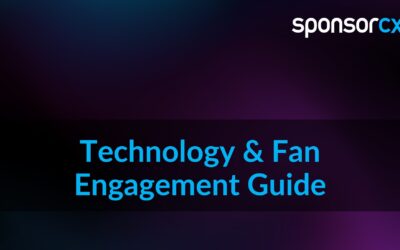Effective sponsorship management takes more than intuition and gut feelings. Data analytics has revolutionized how businesses and organizations approach decision-making in many areas, including sponsorship. Here we’ll look at the critical role that data analytics plays in sponsorship management. We’ll also explore how it helps sponsors stay informed and make strategic decisions that drive meaningful results.
Understanding Audience Insights
Data analytics offers an excellent advantage when it comes to understanding the target audience. Sponsors invest in events and partnerships to reach specific demographics. With data analytics, sponsors can gain comprehensive insights into the preferences, behaviors, and demographics of their target audience. Analyzing data from social media, ticket sales, online surveys, and other sources helps sponsors identify patterns and preferences. This enables them to tailor their sponsorship activities to resonate with the intended audience.
Optimizing Sponsorship ROI
Sponsorship management involves a substantial financial investment. Naturally, sponsors are concerned about the return on investment (ROI). Data analytics allows sponsors to measure the effectiveness of their sponsorships accurately. Through metrics such as brand visibility, customer engagement, lead generation, and sales conversions, sponsors can easily see the impact of their sponsorship efforts. This data-driven approach ensures that sponsors optimize their ROI and make smart decisions on which partnerships to continue or modify.
Identifying Suitable Sponsorship Opportunities
Not all sponsorship opportunities are created equal. Data analytics helps sponsors identify which partnerships are most suitable for their brand. By examining data on target audience overlap, brand alignment, and historical sponsorship performance, sponsors can evaluate potential opportunities more objectively. This analysis ensures that sponsorships are aligned with the brand’s goals and values. This will help maximize the likelihood of successful collaborations.
Personalizing Sponsorship Activations
Generic sponsorship activations may not yield the desired results in this age of personalization. Data analytics empowers sponsors to create personalized and relevant experiences for their audience. By analyzing consumer data, sponsors can design targeted campaigns, interactive experiences, and tailored messaging that resonates with individual attendees. These targeted campaigns also help boost engagement and brand loyalty.
Monitoring Sponsorship Performance in Real-time
As opposed to waiting until the end of an event to see if the sponsorship was a success, data analytics allow it to happen in real-time. This feedback enables sponsors to make immediate adjustments and capitalize on emerging opportunities during the event. Whether it’s altering messaging and redirecting resources, data analytics provides sponsors with the ability to stay responsive and adaptive.
Strengthening Sponsorship Negotiations
Data-driven insights add a layer of objectivity to sponsorship negotiations. Armed with data on previous sponsorship performance and market trends, sponsors can negotiate with event organizers and rights holders from a position of strength. Additionally, data analytics allows sponsors to set performance-based goals and key performance indicators (KPIs). These can be integrated into sponsorship contracts to ensure mutual accountability and success.
Leveraging Social Media and Digital Platforms
Social media and digital platforms have become vital components of sponsorship activations. Data analytics enables sponsors to analyze social media engagement, sentiment analysis, and other digital metrics. This provides sponsors with valuable feedback on audience reception and enables them to refine their digital strategies.
Data analytics has emerged as an irreplaceable tool for sponsorship management. By using the power of data, sponsors can gain a deeper understanding of their audience. Thus optimizing their ROI, identifying other suitable opportunities, and personalizing sponsorship activations. Real-time monitoring and data-driven negotiations further enhance the sponsorship management process. Embracing data analytics is a necessary way to keep sponsors informed and help them make strategic decisions that will drive meaningful results.











